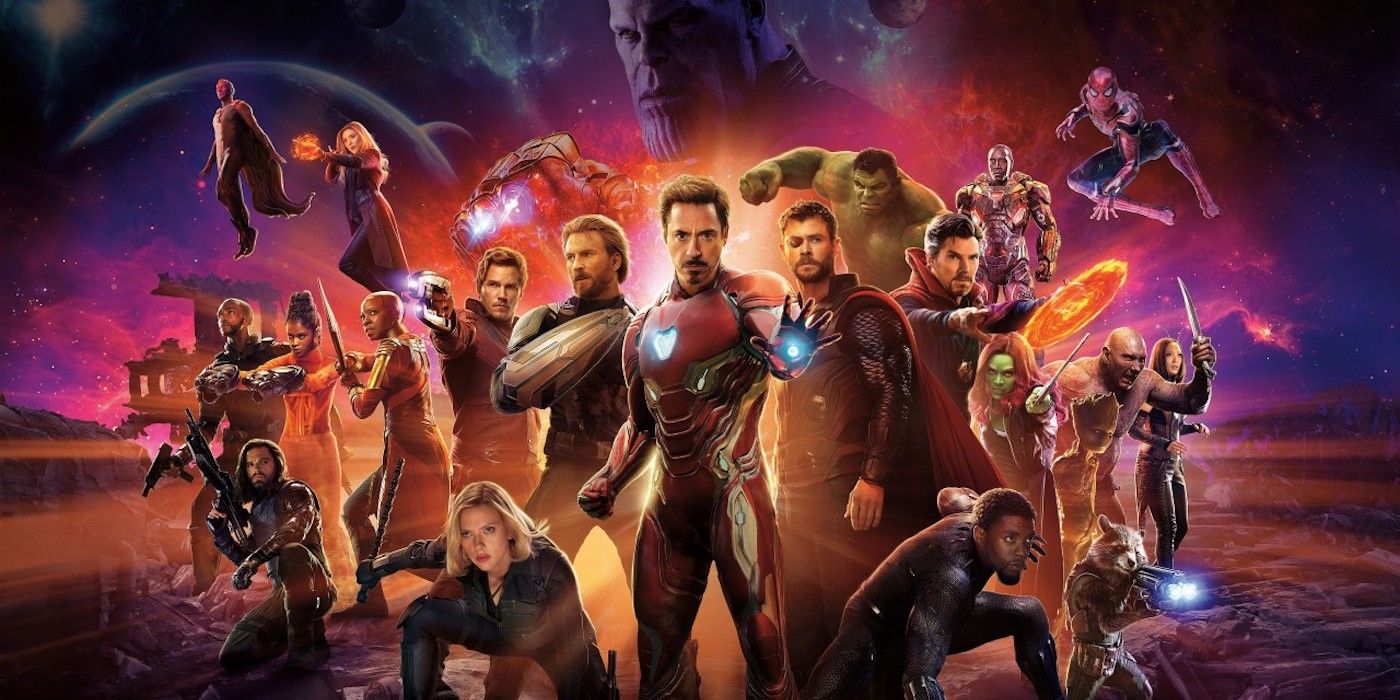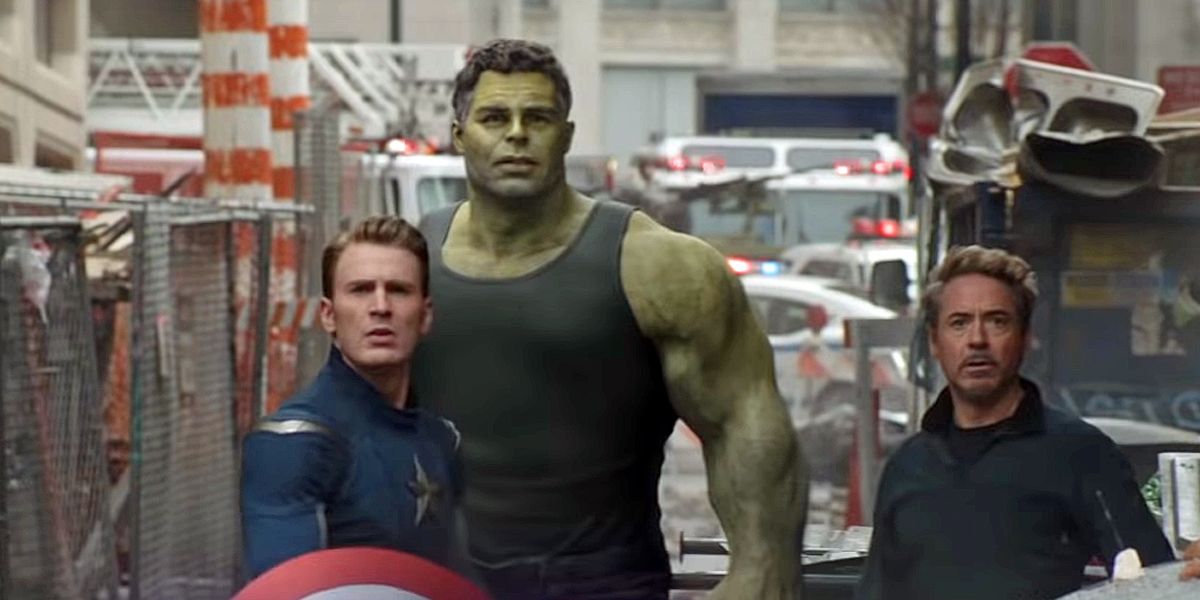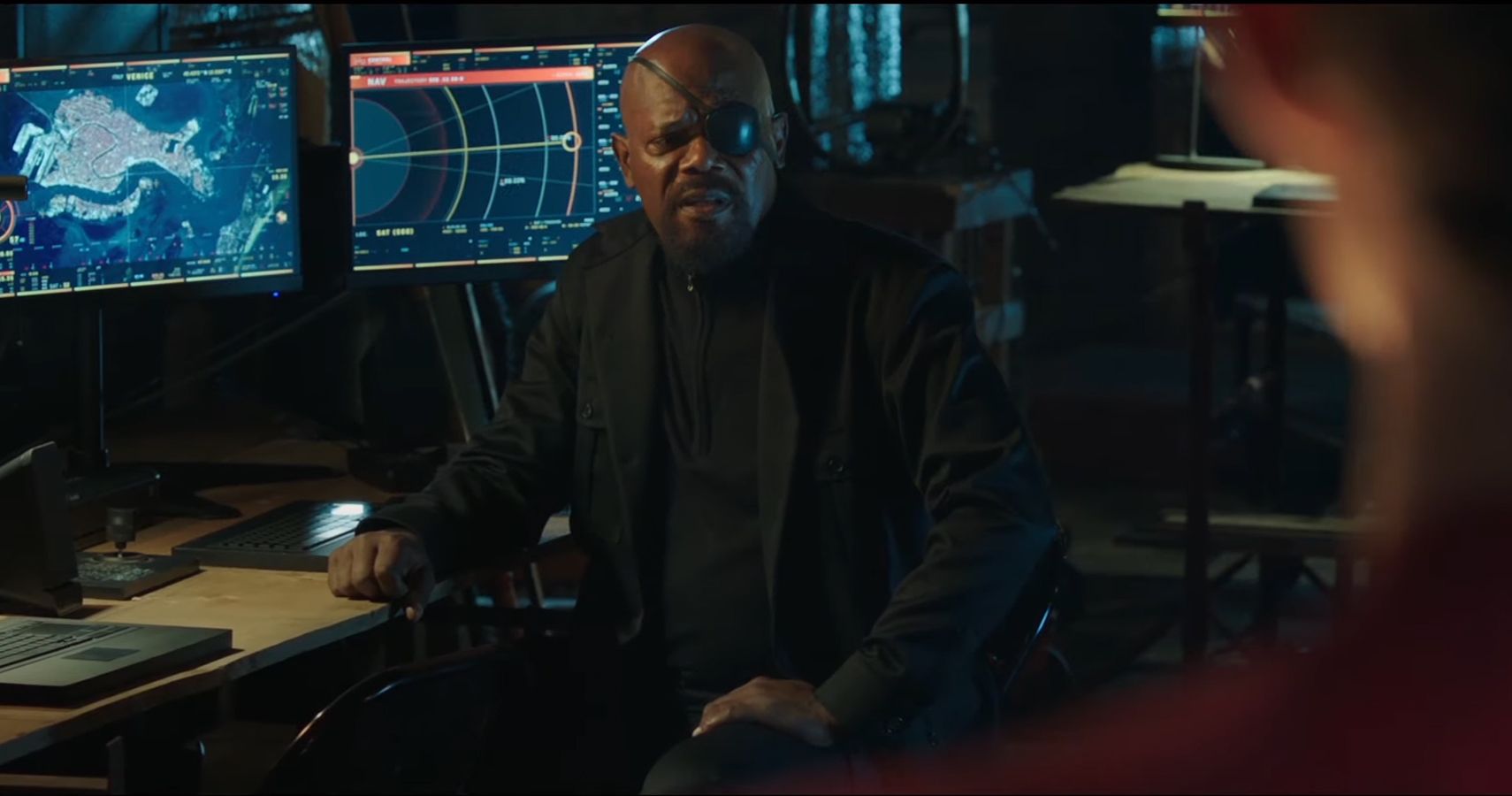WARNING: The following article contains major spoilers for Avengers: Endgame, in theaters now.
The latest trailer for Spider-Man: Far From Home explores the fallout caused by the events of Avengers: Endgame, the repeated usage of the Infinity Gauntlet and, of course, time travel by the surviving heroes of the Marvel Cinematic Universe.
Traveling throughout the history of the MCU, the heroes gathered the Infinity Stones to undo the Mad Titan's actions, with far-reaching consequences for the spacetime continuum. Among these is the confirmed creation of a Marvel Cinematic Multiverse, complete with alternate Earths that have splintered out from the prime timeline seen in all the previous MCU films.
It had been theorized that the latest Far From Home trailer would formally introduce a multiverse to the long-running cinematic shared universe, and Nick Fury's introduction of Mysterio as a hero from another Earth appears to confirm that this is indeed the case.
The introduction of alternate Earths and divergent timelines has many wondering how such concepts will impact the MCU moving forward. This includes directors Joe and Anthony Russo, who don't agree with screenwriters Christopher McFeely and Stephen Markus regarding the multiverse's implications for Captain America.
The once tightly coordinated MCU is at risk of riding off the rails... except for the fact that it has all been tightly overseen by Marvel Studios President Kevin Feige.
One of the biggest factors of the MCU's overall success has been how the studio carefully plots each movie, and how they integrate into one another across the ever-expanding tapestry that is the MCU. To maintain that level of coordination across such an extensive slate of films is one of Hollywood's greatest modern success stories. Plenty of other studios have tried (and largely failing) to replicate Marvel Studios' success.
The introduction of a multiverse and divergent timelines isn't just the latest component consciously added to the MCU. It's Marvel Studios' most ambitious move to date, with projects that take advantage of the change already on the horizon.
The idea of alternate realities and divergent timelines crossing over into the prime timeline has been teased outside of Far From Home. One of the announced Marvel Studios series on Disney+ is Marvel's What If?, exploring alternate takes on classic stories that reportedly will occur in alternate worlds across the Marvel Multiverse.
Such stories being written for the series include one where Peggy Carter takes the Super Soldier Serum to become Captain America while Steve Rogers battles in World War II with a suit of armor developed by Howard Stark. The Gamora of an alternate 2014 is currently on the loose in 2019, as seen in the final moments of Endgame, and will likely inform the direction of Guardians of the Galaxy Vol. 3.
An alternate Loki from 2012 is still unaccounted for and in possession of the Tesseract, perhaps playing into his own upcoming Disney+ series. Captain America's voyage back to the 1940s to live out a happy life with Peggy likely has ripple effects all the way to his reappearance as an old man by Endgame's conclusion.
Avengers: Endgame was long heralded as the end of an era for the MCU, and while it did signal the probable conclusion of Iron Man, Black Widow and Captain America's story arcs, it really served as a whole new beginning for the MCU, broadening its possibilities to infinite proportions.
With this in mind, it makes perfect sense that Spider-Man: Far From Home serves as the conclusion to Phase Three of the MCU rather than Endgame, as Feige claimed. Far From Home will directly explore the fallout of Endgame's reality-altering events as Peter Parker travels across Europe.
After over a decade of coordinating across a single universe and timeline, Marvel Studios has stepped up its game following Endgame to turn the MCU into a whole multiverse ripe with alternate reality possibilities, some of which have already begun to cross over into the main universe.
Mysterio and the Elementals that Spider-Man encounters are likely just the first incursions from the multiverse to make it to Earth. After all, it was Nick Fury who first warned Tony Stark at the dawn of the MCU that he had just joined "a much bigger universe." With alternate realities now on the table, the sky is no longer the limit for Marvel Studios.
Directed by Joe and Anthony Russo, Avengers: Endgame stars Robert Downey Jr. as Iron Man, Chris Evans as Captain America, Mark Ruffalo as Bruce Banner, Chris Hemsworth as Thor, Scarlett Johansson as Black Widow, Jeremy Renner as Hawkeye, Brie Larson as Captain Marvel, Paul Rudd as Ant-Man, Don Cheadle as War Machine, Karen Gillan as Nebula, Danai Gurira as Okoye and Bradley Cooper as Rocket, with Gwyneth Paltrow Pepper Potts, Jon Favreau as Happy Hogan, Benedict Wong as Wong, Tessa Thompson as Valkyrie and Josh Brolin as Thanos.



